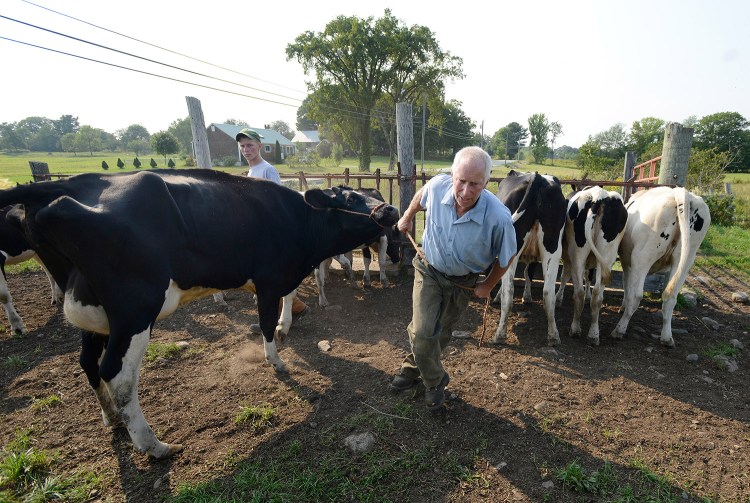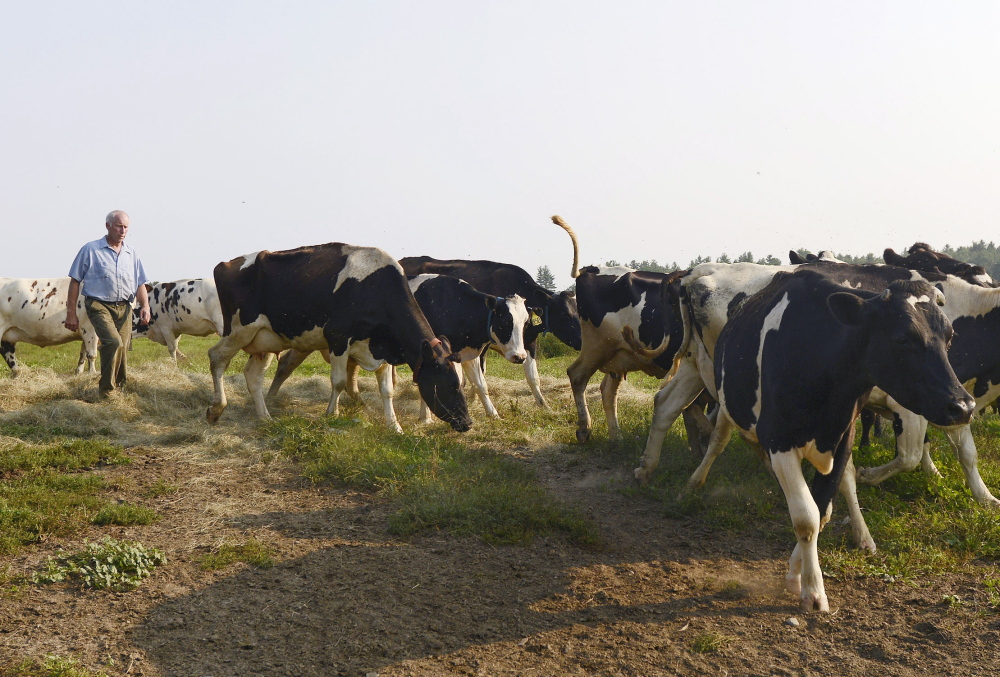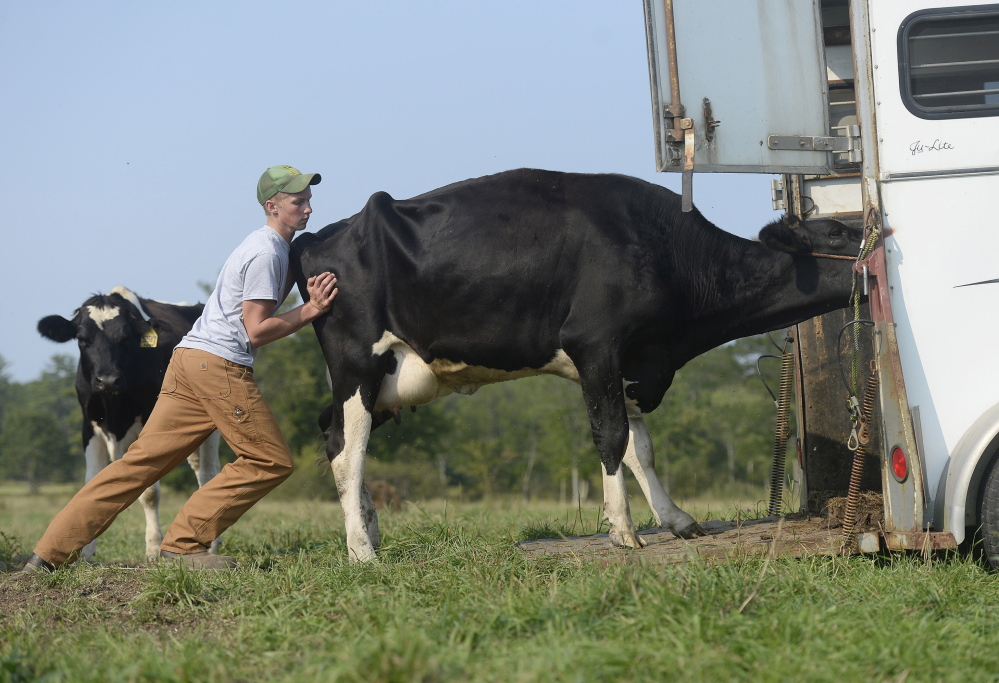A milk hauler from Palermo says two regional routes just aren’t profitable, leaving some producers high and dry.
Eight Maine dairy farms are scrambling to find a way to get their milk to market after a hauler told them he plans to drop them from his collection routes.
The farmers were told by Jesse Haskell that the routes – one in southern Maine and the other in Waldo County – are no longer profitable and he will most likely drop the farmers at the end of this month.
Haulers collect milk from dairy farms and take it to processors, including Oakhurst in Portland. The other major wholesale customer for Maine milk is H.P. Hood, which also has a processing plant in Portland.
“It leaves me in a rather awkward spot,” said Tim Leary, who milks about 16 cows on his farm in Saco. “But I recognize it’s a long route and not much milk.”
Leary said he produces about 1,400 pounds of milk every two days.
Haskell, who is based in Palermo, said his tanker holds about 60,000 hundredweight of milk – bulk milk is measured by weight and a hundredweight is 100 pounds. On the southern Maine run, it’s often only half-full. Paying for the fuel, a driver and other costs mean he’s losing money continuing the run without more milk, he said.
Julie-Marie Bickford, executive director of the Maine Dairy Industry Association, said the difficulty in finding haulers for milk is yet another problem confronting the state’s struggling dairy industry. The state had nearly 500 dairy farms a decade ago; now they number 253.
Compounding their difficulties is a recent drop in the price for milk, she said. Farmers will get about $18 a hundredweight this month, compared to more than $23 a hundredweight a year to 18 months ago.
Bickford said the problem with transporting milk has its roots in the higher fuel prices of a couple of years ago. Farmers bear the cost of transporting their milk, and the higher prices prompted some to shop around to find a less expensive hauler, she said. That disrupted long-established routes for milk pickups in a state where there are only a handful of milk haulers.
Since then, “it’s been harder and harder to put together milk runs that are financial sustainable,” she said.
SEVEN GENERATIONS
Leary said the loss of the hauler may force him to get out of the commercial dairy industry altogether, essentially ending his family’s seven generations in the milk business. Four years ago, he had more than 50 cows – triple what he has now. He said he might keep a few cows, but intends to continue focusing more on vegetables, most of which he sells to Hannaford, the supermarket chain.
Vegetable farming now provides nearly 90 percent of his gross revenue.
“I’m the cabbage king of York County,” he said, and he also grows cucumbers, pumpkin, squash and other vegetables.
Leary said property taxes and insurance have increased his costs and some of the land he previously leased for pasture has been converted to housing.
In addition, southern Maine’s support system for dairy farmers has all but disappeared, Leary said. For instance, the closest veterinarian who specializes in treating cows is in Monmouth and he has to go to Fairfield if he needs to repair or replace dairy farming equipment.
Leary said it was difficult to reduce his cow herd, but he felt that the pressures on the business left him no other choice if he was going to continue operating the family farm.
“I hate to be a wet blanket and I don’t think that the dairy industry in southern Maine will disappear, but it will continue to contract,” Leary said.
DRIVERS HARD TO FIND
Haskell understands the challenges in the dairy industry, but said it’s been difficult to find drivers – and he wants to increase the pay and benefits for the roughly 30 drivers he now employs. He can’t boost their pay, he said, if he’s running routes that don’t turn a profit.
John Bennett, the president of Oakhurs, said Wednesday that the company is contacting the farmers involved to let them know the dairy is looking into alternatives to get their milk to the processing plant. Haskell said five of dairy farms he’s intending to drop are in southern Maine and three are in Waldo County, although he declined to identify them.
“We’re concerned about it,” Bennett said.
The amount of milk received from the dairies affected isn’t huge, Bennett said, “but we don’t want someone to be out of luck because they don’t have a hauler.”
Leary appreciates Oakhurst’s assistance, but wasn’t hopeful that an affordable alternative would be found.
Copy the Story LinkSend questions/comments to the editors.






Success. Please wait for the page to reload. If the page does not reload within 5 seconds, please refresh the page.
Enter your email and password to access comments.
Hi, to comment on stories you must . This profile is in addition to your subscription and website login.
Already have a commenting profile? .
Invalid username/password.
Please check your email to confirm and complete your registration.
Only subscribers are eligible to post comments. Please subscribe or login first for digital access. Here’s why.
Use the form below to reset your password. When you've submitted your account email, we will send an email with a reset code.